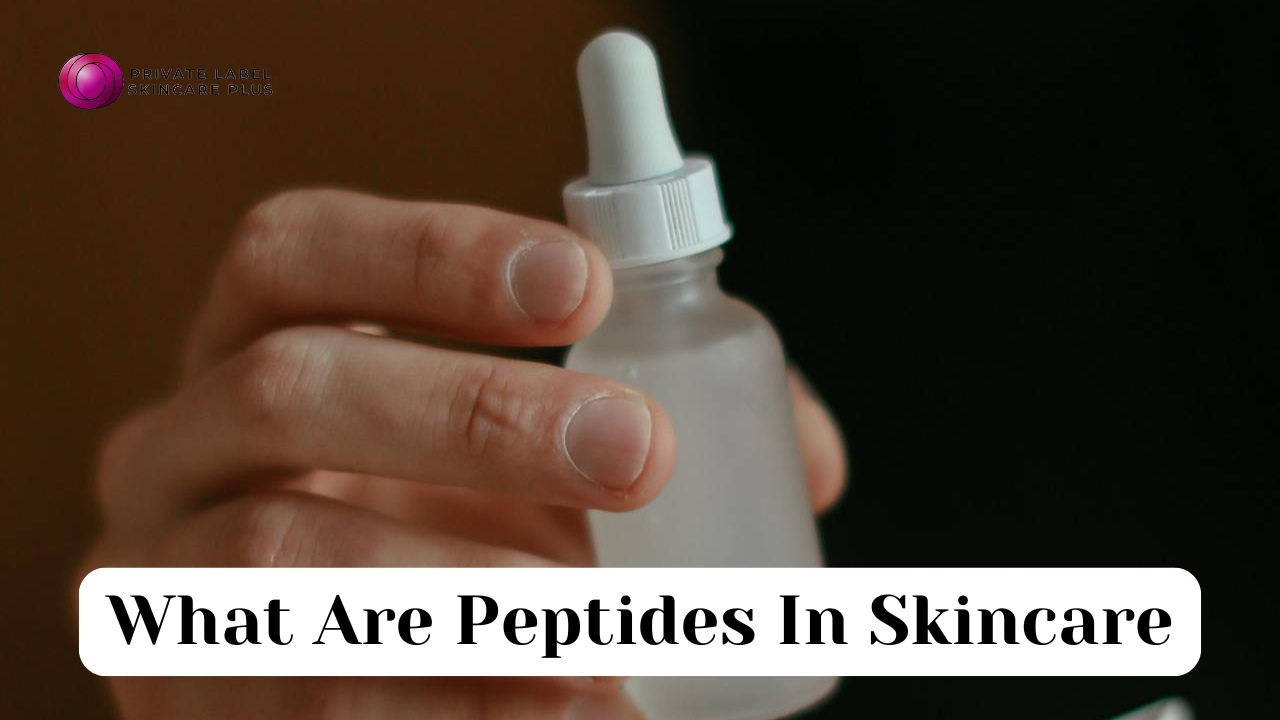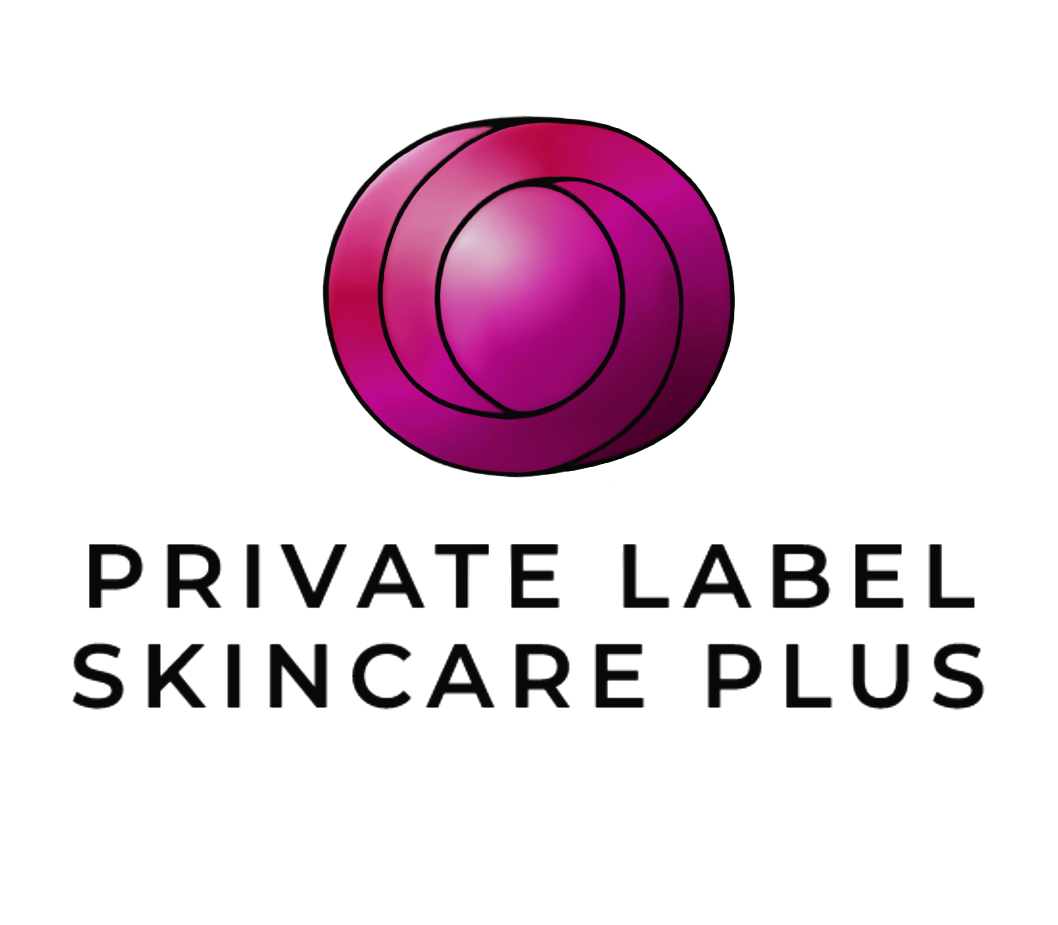Peptides are short chains of amino acids, the building blocks of proteins like collagen and elastin, which are vital for skin health. In the context of skincare, peptides play a crucial role in signaling skin cells to perform specific functions, such as producing more collagen or repairing damage. Their ability to communicate with the skin on a cellular level makes them a powerful ingredient in many advanced custom skincare formulations.
Peptides have become a cornerstone in anti-aging skincare due to their proven effectiveness and ability to target multiple skin concerns. From reducing the appearance of fine lines and wrinkles to improving skin texture and firmness, peptides offer a science-backed solution that resonates with today’s informed consumers. For private label skincare brands, incorporating peptides into product lines can be a strategic move to meet the growing demand for effective, results-driven skincare.
How Do Peptides Work in Skincare?
Peptides are essential for maintaining skin health and youthfulness. As we age, our skin produces less collagen and elastin, leading to signs of aging such as wrinkles and sagging skin. Peptides help counteract these effects by signaling the skin to produce more collagen and elastin, which are critical for maintaining the skin’s firmness and elasticity.
Peptides work by penetrating the skin barrier and interacting with skin cells at a molecular level. They bind to specific receptors on the surface of skin cells, triggering a variety of responses such as increased collagen production, enhanced skin repair, and reduced inflammation. This makes peptides versatile in addressing a wide range of skin concerns, from aging to hydration and beyond.
Benefits of Peptides in Skincare
- Anti-aging: Peptides help reduce the appearance of fine lines and wrinkles by stimulating collagen production and enhancing skin elasticity.
- Firming and tightening: By boosting elastin production, peptides can improve skin firmness and provide a more lifted appearance.
- Hydration: Certain peptides improve the skin’s ability to retain moisture, leading to a more plump and hydrated complexion.
- Skin barrier repair: Peptides strengthen the skin’s natural barrier, protecting it from environmental damage and improving overall skin health.
Types of Peptides Used in Skincare
Signal Peptides Signal peptides are perhaps the most well-known in skincare. They work by sending messages to skin cells to produce more collagen, elastin, and other proteins essential for maintaining the skin’s structure and firmness. An example of a popular signal peptide is Palmitoyl Pentapeptide-4, known for its anti-aging benefits.
Carrier Peptides Carrier peptides deliver trace elements, such as copper, to the skin, which are vital for wound healing and enzymatic processes. These peptides not only help in skin repair but also enhance the skin’s natural defense mechanisms.
Enzyme-Inhibitor Peptides These peptides work by inhibiting the activity of enzymes that break down collagen and elastin in the skin. By slowing down this degradation process, enzyme-inhibitor peptides help maintain skin elasticity and prevent premature aging.
Neurotransmitter-Inhibitor Peptides Often referred to as “Botox-like” peptides, neurotransmitter-inhibitor peptides work by reducing the activity of facial muscles, thereby minimizing the formation of expression lines and wrinkles. These peptides are a popular choice for formulations targeting dynamic wrinkles.
Incorporating Peptides into Private Label Skincare

Formulation Considerations
When formulating skincare products with peptides, stability is a key concern. Peptides can be sensitive to changes in pH, temperature, and the presence of other active ingredients. Ensuring the correct concentration and combination of peptides is crucial for product efficacy. Additionally, peptides can be paired with other ingredients like hyaluronic acid for hydration or retinol for enhanced anti-aging benefits.
Product Types for Peptides
Peptides can be incorporated into a wide range of skincare products, including serums, creams, eye treatments, and masks. For example, a peptide serum can target signs of aging, while a peptide-infused eye cream can address puffiness and fine lines. Tailoring peptide products to specific skin concerns allows brands to meet the diverse needs of their customers.
For private label brands, highlighting the science and proven benefits of peptides is essential for product marketing. Educating consumers about how peptides work and the specific results they can expect will help build trust and credibility. Positioning peptide-infused products as part of a science-backed skincare regimen can differentiate a brand in a crowded market.
Why Choose a Private Label Manufacturer?
Private labeling offers numerous benefits, including the ability to customize products to meet specific brand needs and consumer preferences. For skincare brands, partnering with an experienced private label manufacturer ensures access to high-quality formulations and the latest innovations in peptide skincare.


